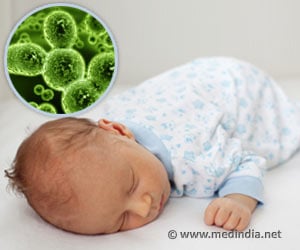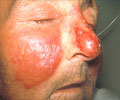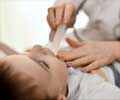
‘Immunising expectant mother is the only way to reduce the number of maternal and child deaths associated GBS infection. Early-onset GBS disease in newborns is the leading cause of infant deaths among the Indian population.’
Tweet it Now
The researchers conservatively estimate that out of 410,000 GBS cases every year; there will be at least 147,000 stillbirths and infant deaths globally. Emphasising the need for a maternal GBS vaccine, the team, led by London School of Hygiene & Tropical Medicine, revealed that Nigeria with 8,000 infant GBS-related deaths ranked second, followed by Ethiopia (4,000), the Democratic Republic of the Congo (4,000) and Pakistan (3,000).
When it comes to infant GBS disease cases, India again topped with 31,000 infant disease cases. China was second with 25,000 cases, followed by Nigeria (22,000), the Democratic Republic of the Congo (16,000) and Egypt (14,000).
"Antibiotics currently prevent an estimated 29,000 cases of early-onset GBS disease per year, almost all in high-income settings. However, this approach may be difficult in low-income settings where many births take place at home, and laboratory capacity for screening for GBS is limited," said Joy Lawn, Professor at London School of Hygiene & Tropical Medicine.
The GBS bacteria was found to be present in an average of 18 percent of pregnant women worldwide carrying the bacteria -- ranging from 11 percent in eastern Asia to 35 percent in the Caribbean -- totaling 21.7 million in 195 countries.
Advertisement
"In addition, giving antibiotics to 21.7 million women may contribute to antimicrobial resistance -- a major global health crisis," Lawn added.
Advertisement
The study urged for the development of an effective GBS vaccine, saying that immunizing expectant mothers is a potentially ground-breaking approach that could dramatically reduce the number of maternal and child deaths.
According to the researchers, a maternal GBS vaccine, which is just 80 percent effective and is able to reach at least 90 percent of women, could potentially prevent 231,000 infant and maternal GBS cases globally.
"Even if antibiotics were given to all pregnant women identified through screening strategies, they target mainly early-onset GBS disease in newborns, not GBS disease in pregnant women, GBS disease before delivery causing stillbirth, or GBS disease in infants more than a couple of days old", explained Anna Seale, Associate Professor at the varsity.
Although several vaccines to prevent GBS are in development, none is currently available. Current GBS prevention focuses on giving antibiotics to women in labor, aiming to reduce disease in infants at delivery.
Only "a maternal GBS vaccine could prevent many more cases and deaths worldwide," Seale added.
Source-IANS











